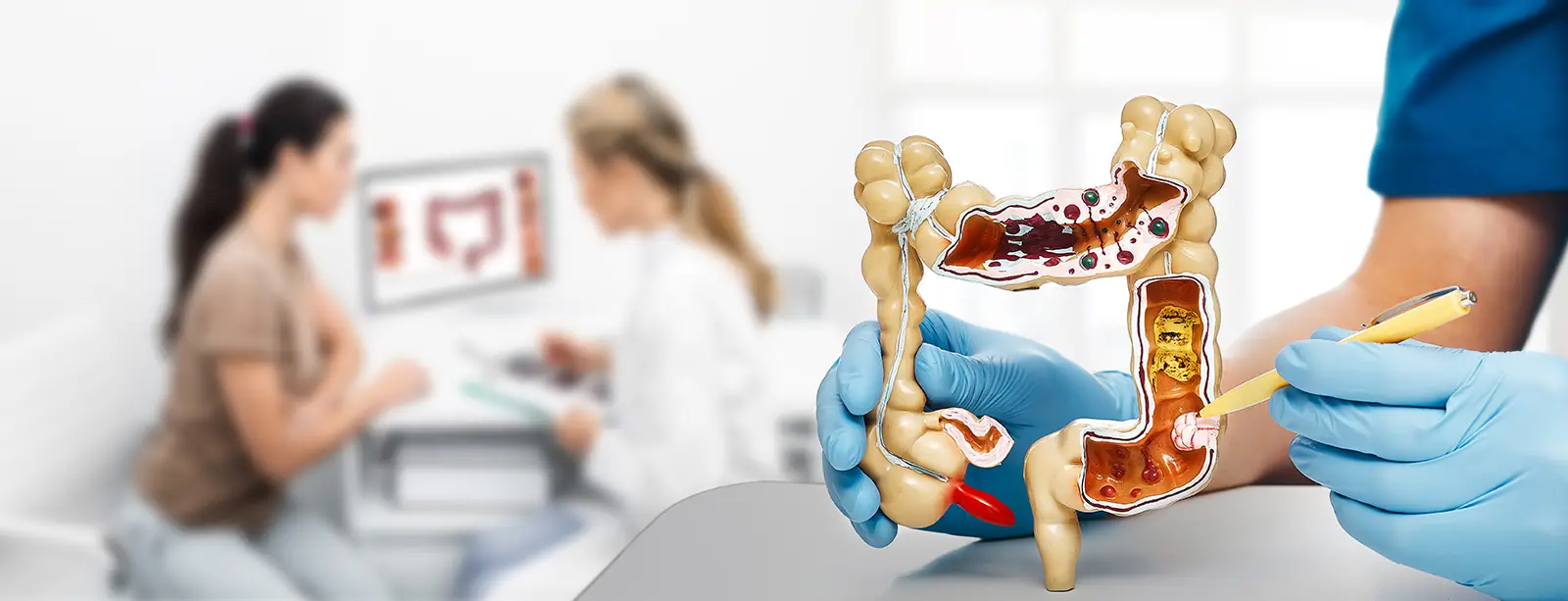Cancer of the colon is the third most common cause of cancer deaths in men and women in the United States. Because there are no early warning signs of colon cancer, it is very important to get screened for colon cancer and know what colon cancer signs are.
Although colon cancer can cause symptoms, they typically don’t appear until the cancer is advanced. At that point, the cancer cells may have spread to other parts of the body.
What is Colon Cancer, and is it Common in Younger People?
Colon cancer is the abnormal growth of cells that line the inner surface of the large intestine (colon). The colon is a major part of the lower intestinal tract, and it is one of the first parts of the body to be exposed to the effects of aging. The colon cleans and extracts water from waste material that enters the large intestine from the small intestine.
People with a family history of colon cancer have an increased risk, but surprisingly, it’s more common to see patients under 50 years old develop colon cancer. While the reason for this remains unclear, the likely possibility for the development of colon cancer among younger adults is related to their diet, obesity, or sedentary lifestyle.
What are the Symptoms of Colon Cancer?
Few patients with early-stage colon cancer have symptoms. If you do have symptoms it usually indicates that the cancer is more advanced and has spread to other parts of the body. With that in mind, conducting screening tests play a pivotal role in preventing the further development of colon cancer, allowing your physician to identify the early signs and remove them before your condition worsens.
As for the advanced symptoms, here are some colon cancer signs and symptoms:
- An apparent change in bowel habits, from constant diarrhea, constipation, and more;
- Rectal bleeding;
- Bloody stool;
- Abdominal pain;
- Weakness and fatigue;
- Unexplained weight loss;
Who Should Get Screened for Risks of Colon Cancer?
The most common screening test for colon cancer is colonoscopy (also known as colonoscopy examination). During the procedure, a narrow, flexible instrument called a colonoscope is inserted into the rectum. It has a tiny camera attached to the end that sends live images to a video screen. The doctor will closely examine the colon and remove any polyps or abnormal tissue. In some cases, they may also take a tissue sample for lab testing.

At Craft Body Scan, we offer a virtual colonoscopy. Virtual colonoscopies have emerged as a great alternative to conventional colonoscopies. Not only are they more convenient, but they are less invasive, do not require sedation, and have fewer complications. Our virtual colonoscopy images are generated by a CT scan of your abdomen and pelvis. These images can show polyps and other abnormalities inside your colon and rectum.
All people aged 40 and older, regardless of their risk for cancer, should begin screening for colon cancer. In fact, it is critical that people who are at high risk of developing colon cancer begin screening at age 45.
Other risk factors include:
- Family history of colon cancer;
- Personal history of polyps or inflammatory bowel disease;
- Personal history of other types of cancer;
- Type 2 diabetes;
- The use of certain medications, such as Aspirin;
- A history of inflammatory bowel disease.
The Bottom Line: Understanding the Risks of Colon Cancer
Out of all the different cancerous diseases in the world, colon cancer is a silent killer that often goes undetected until it is too late. Take this knowledge and make sure to get screened for cancer.
Are You Looking for an Advanced Body Scan?
If you or someone you love is in need of a virtual colonoscopy in Tulsa or Raleigh, call the Craft Body Scan today to set up an appointment for colon scans and learn more about our innovative options. We strive to stay on top of your health and catch any abnormalities that are easy to overlook.







